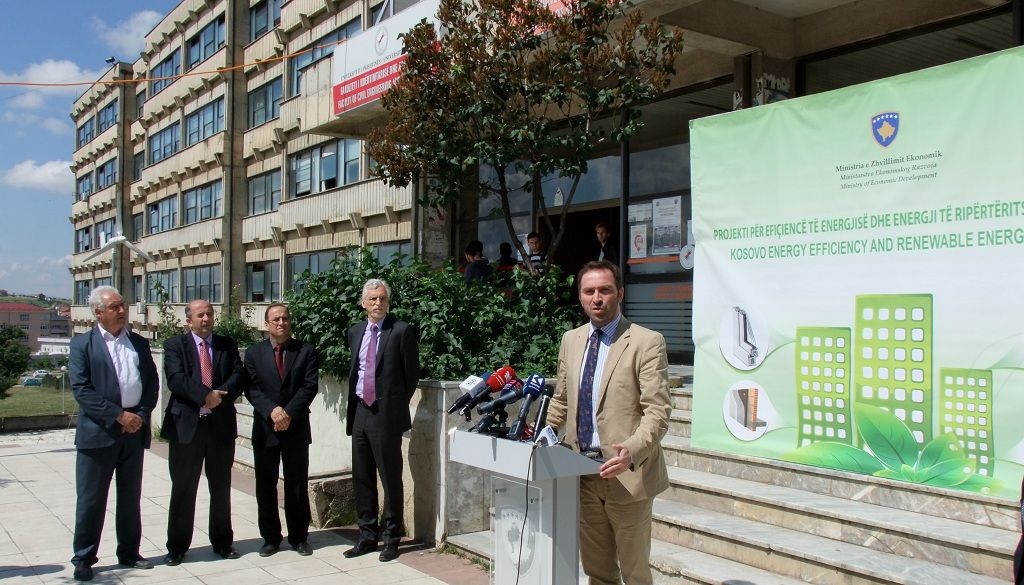31 million USD to enhance Energy Efficiency and Renewable Energy
Prishtina, 22.06.2015 – Energy Efficiency and Renewable Energy Project will be a good example of how our country is implementing measures and standards related on energy efficiency in public buildings, and will also have an impact on social and economic issues, said Minister of Economic Development, Blerand Stavileci.
Minister Stavileci made these comments today in the launching event of the EE and RE Project, also attended by the Director of the World Bank for Kosovo, Jan-Peter Olters, members of academia, electrical and computer engineering, mechanical engineering, construction and architecture, and numerous professors and students, the building of which was selected as the starting point of this project.
Stavileci said that this project is implemented through a World Bank loan, in the amount of 31 million UDS, which aims to implement energy efficiency measures in public buildings in the central and local level, and thanked this financial institution for being a key partner in the energy sector as well as in other sectors in Kosovo.
Economic Development Minister reiterated the Government’s objective to establish, with partners, an Energy Efficiency Fund, which will be accessible to the private sector as well as households which want to implement efficiency measures, with the aim of reducing energy consumption and costs.
From his part, World Bank Director for Kosovo, Jan-Peter Olters, highly appreciated the importance of this project which, according to him, will have an impact beyond the field of energy. “These are not only right investments for environmental reasons, but also for economic stability. The project will show that these investments will provide a rather quick return on investment”, he added.
The Dean of the Faculty of Construction and Architecture, Naser Kabashi, thanked Minister Stavileci for investments to be made in enhancing EE in the technical faculty, and said this will improve the working conditions for students and teachers, and will also reduce energy costs.
The Energy Efficiency and Renewable Energy Project is expected to be implemented through a five-year period, and consists of three components:
1. Investments in EE and RE in public buildings;
2. Support for policies and the regulatory framework for RE and EE, and assessment of relevant RE resources, and
3. Support for project implementation

